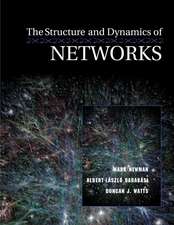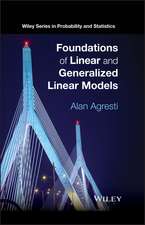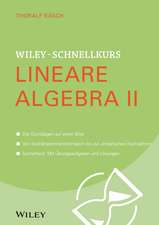Flows in Networks: Princeton Landmarks in Mathematics and Physics
Autor Lester Randolph Ford, D. R. Fulkersonen Limba Engleză Paperback – 15 feb 2016
| Toate formatele și edițiile | Preț | Express |
|---|---|---|
| Paperback (1) | 312.55 lei 22-36 zile | |
| Princeton University Press – 15 feb 2016 | 312.55 lei 22-36 zile | |
| Hardback (1) | 673.58 lei 43-57 zile | |
| Princeton University Press – 18 apr 2016 | 673.58 lei 43-57 zile |
Preț: 312.55 lei
Nou
Puncte Express: 469
Preț estimativ în valută:
59.83€ • 65.01$ • 50.29£
59.83€ • 65.01$ • 50.29£
Carte disponibilă
Livrare economică 31 martie-14 aprilie
Preluare comenzi: 021 569.72.76
Specificații
ISBN-13: 9780691625393
ISBN-10: 0691625395
Pagini: 212
Dimensiuni: 155 x 234 x 16 mm
Greutate: 0.3 kg
Editura: Princeton University Press
Seria Princeton Landmarks in Mathematics and Physics
ISBN-10: 0691625395
Pagini: 212
Dimensiuni: 155 x 234 x 16 mm
Greutate: 0.3 kg
Editura: Princeton University Press
Seria Princeton Landmarks in Mathematics and Physics
Descriere
Descriere de la o altă ediție sau format:
This book presents simple, elegant methods for dealing, both in theory and in application, with a variety of problems that have formulations in terms of flows in capacity-constrained networks. Since the theoretical considerations lead in all cases to computationally efficient solution procedures, the hook provides a common meeting ground for person
This book presents simple, elegant methods for dealing, both in theory and in application, with a variety of problems that have formulations in terms of flows in capacity-constrained networks. Since the theoretical considerations lead in all cases to computationally efficient solution procedures, the hook provides a common meeting ground for person























